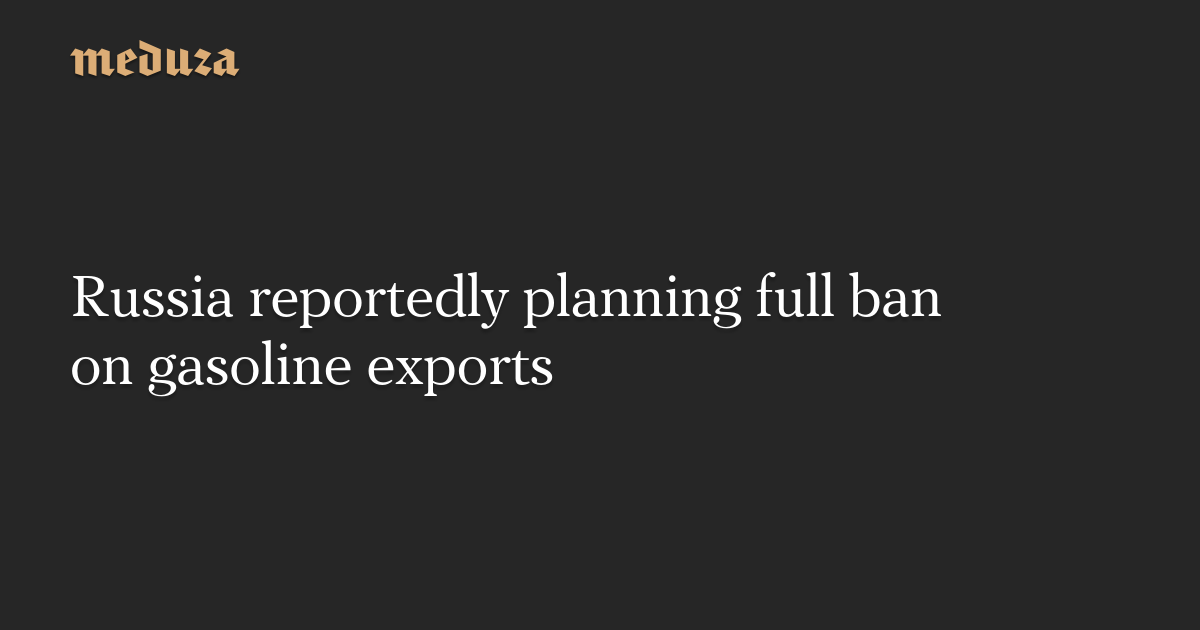The Russian government has prepared a draft resolution to impose a complete ban on gasoline exports, Kommersant reported, citing sources familiar with the matter.
According to the outlet’s sources, the embargo will take effect on August 1 and remain in place for at least a month, with a possible extension through the end of September.
The suspension of gasoline exports is intended to “cool down the fuel market,” where prices are approaching historic highs, Kommersant noted. On July 24, the price of AI-95 gasoline on the St. Petersburg Exchange rose 0.4 percent to 76,330 rubles ($960) per ton — just 0.7 percent below the all-time record set in September 2023. The price of AI-92, which reached 66,600 rubles ($838) on July 23, fell slightly to 66,300 rubles ($834) the next day.
Yevgeny Arkusha, head of the Russian Fuel Union, said the main driver behind the price surge is a shortage in supply — particularly of AI-95 — as well as cross-purchasing among oil companies. He added that the reduced supply is partly due to the rescheduling of planned refinery shutdowns from May to July.
Sergey Frolov, managing partner at NEFT Research, said the underlying problem is Russia’s limited buffer capacity for gasoline production. He explained that any planned or emergency shutdowns tend to have an outsized impact on the market during periods of high demand. Since domestic production only slightly exceeds internal consumption, significant exports during shutdowns can create serious imbalances, he added.
At present, export restrictions apply only to companies that do not produce gasoline. In February 2025, the government extended that measure by six months, through August 31.
